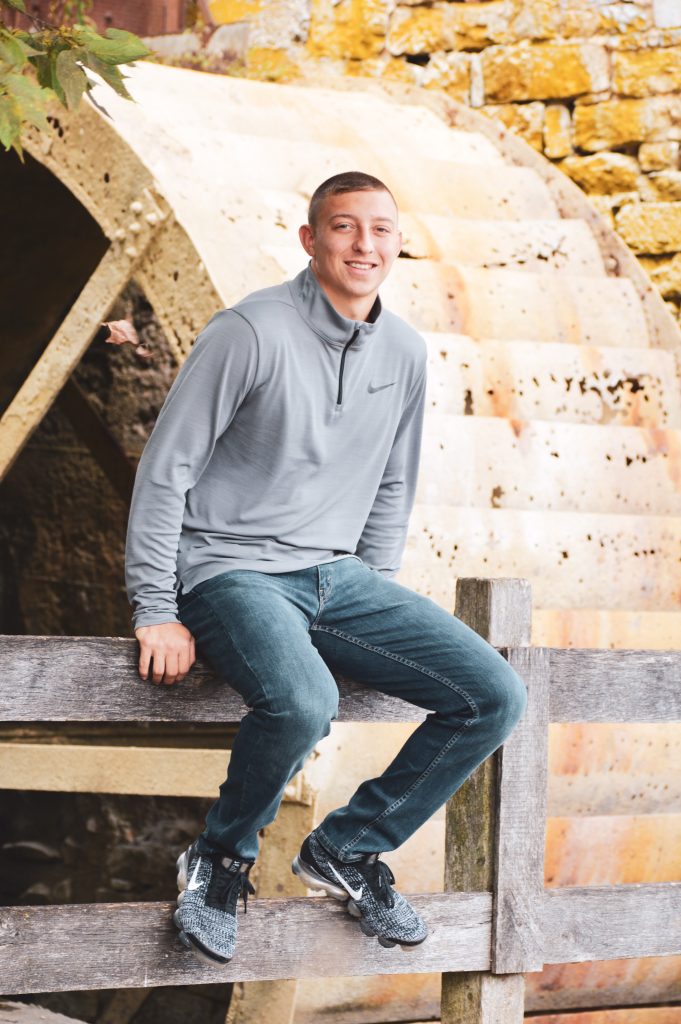about
News
BUCKHANNON, West Virginia – A West Virginia Wesleyan College rising junior and McCuskey Fellow will spend his summer working towards building a model of the Mars helicopter Ingenuity as part of an undergraduate research grant award.
Caleb Hardy ’25, of Kearneysville, West Virginia, was awarded a NASA-West Virginia Space Grant Consortium Undergraduate Research Grant for the 2023-24 year.
“The research project I will be working on over the summer was inspired by the Mars helicopter Ingenuity, and the goal is to build a model of Ingenuity with some of the same capabilities,” Hardy said. “Specifically, I want the model helicopter to be autonomous and fly to a set waypoint. Additionally, I want to connect solar cells to the helicopter so it can be solar powered.”
“West Virginia Wesleyan College has prepared me for this project due to my participation in the NASA RockSat program we have on campus where we build payloads that are launched on sounding rockets. Furthermore, the challenging courses I have taken thus far will equip me with the tools I need for this difficult project.”
Dr. Joseph Wiest, professor in the Department of Physics and Engineering and a board member of the NASA-WVSGC, said, “This is a very competitive grant program that is open to all of the colleges and universities in West Virginia and requires an original grant to be conceived and written that will be of special interest and address a particular need of the NASA program.”
Hardy was inspired by Christopher Kuhl ‘93 who has worked as an aerospace engineer for NASA-Langley and led the landing of the space probe of Mars in the past year.
“Christopher’s work has led to the first flying of a helicopter on Mars, the successful Earth-guided movement of a rover on Mars, and the search for evidence of life on Mars,” Wiest said.
Hardy was drawn to West Virginia Wesleyan College for its NASA affiliation among other reasons.
“I chose to attend Wesleyan because of its smaller size classes along with its excellent physics program, and the College’s affiliation with NASA had a tremendous impact on my decision as well,” he said. “The reasons I stay at WVWC are the wonderful professors, which I have been able to make personal connections with, and I have had many opportunities to apply for scholarships and internships through the school.”
Wiest added, “Caleb has been an excellent student in all of our physics, engineering, and mathematics courses at Wesleyan; and he also serves as a tutor for the Learning Center.”
ABOUT WEST VIRGINIA WESLEYAN COLLEGE
West Virginia Wesleyan College (WVWC) is a private, four-year residential liberal arts and sciences college in Buckhannon, West Virginia. A tradition of excellence for more than 130 years, West Virginia Wesleyan is home to 14 Fulbright Scholars. The Princeton Review ranked Wesleyan as one of its 2023 Best Colleges in the Southeastern Region of the United States. U.S. News & World Report’s 2022-2023 Best College Rankings designated Wesleyan seventh in Best Value – Regional Universities (South). WVWC offers students more than 40 majors and 40 minors; graduate programs in athletic training, business administration, creative writing, and nursing; 22 NCAA Division II athletic programs; multiple performing arts groups; and more than 70 organizations. Founded in 1890, the College is closely affiliated with the United Methodist Church and abides by the Wesley doctrine that emphasizes service to others. For more information, visit wvwc.edu.


